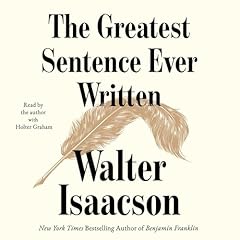
Shakespeare: The Word and the Action
No se pudo agregar al carrito
Add to Cart failed.
Error al Agregar a Lista de Deseos.
Error al eliminar de la lista de deseos.
Error al añadir a tu biblioteca
Error al seguir el podcast
Error al dejar de seguir el podcast
 Exclusivo para miembros Prime: ¿Nuevo en Audible? Obtén 2 audiolibros gratis con tu prueba.
Exclusivo para miembros Prime: ¿Nuevo en Audible? Obtén 2 audiolibros gratis con tu prueba.Compra ahora por $20.96
-
Narrado por:
-
Peter Saccio
Shakespeare is the leading playwright - and probably the leading writer - in Western civilization. His works are one of the greatest achievements of the human mind and spirit. And yet, for far too many of us, they remain a closed book. Why?
Professor Saccio is well suited in these 16 lectures to bring you back into Shakespeare's world and tune you into what he calls "Shakespeare's wavelength." As you hear him effortlessly deliver heretofore impenetrable language with the proper meter, emphasis, intonation, and emotion, you'll experience the pleasure that comes with true mastery. Professor Saccio also prepares you to read or watch the plays by orienting you to Shakespeare's use of multiple plots, lines of action, and the sometimes outmoded forms of human behavior (such as courtship in Elizabethan England) that arise in his plays.
Shakespeare was acutely aware of the importance of history - and not just of events but of ideas. You'll see how his tragedies and histories are meditations on the changing world around him and of the eternal issues of character and human nature. You'll journey into a world where actions and ideas intersect and raise profound and unexpected questions, such as how Richard III could be both a classic villain and a Renaissance figure, and whether a man such as Coriolanus can be a hero without a cause or a country.
To read Shakespeare is to take a daunting journey into a perpetually undiscovered country that reinvents itself with every visit. But with these lectures, it will become a familiar pleasure.
PLEASE NOTE: When you purchase this title, the accompanying reference material will be available in your Library section along with the audio.
©1995 The Teaching Company, LLC (P)1995 The Great CoursesLos oyentes también disfrutaron:




















Las personas que vieron esto también vieron:












can't go wrong
Se ha producido un error. Vuelve a intentarlo dentro de unos minutos.
Shakespeare tends to work the other way around. Instead of using art to convey ideas, he uses ideas (amongst other things) to create art. Ideas are amongst the various materials he uses to explore the human condition. He is really concerned in the sonnets with what it feels like to be in various love situations, not to draw an overarching conclusion about love. He is wholly absorbed in the immediate situation…He is a great artist at inhabiting a mind, a feeling, at a particular moment. In that sense, the variety of views of love expressed in the sonnets bears some analogy to the variety of characters he creates in the plays.”
- Lecture 4, Love in Shakespeare’s Sonnets
That’s a fine example of the kind of insights you’ll find here. This one explains (to me, at least) why Shakespeare is so enduring: he can’t be pigeonholed. Falstaff’s critique of military glory doesn’t mean Shakespeare was anti-war. Nor do the stirring speeches he puts in King Harry’s mouth make him an arch-imperialist. They just prove he was the master craftsman of our language.
Professor Saccio is simply superb. Like his subject, he doesn’t come to the works with any hidden agendas. He just sincerely wants us to understand Shakespeare better, and he succeeds brilliantly.
Why You Should Hear These Lectures
Se ha producido un error. Vuelve a intentarlo dentro de unos minutos.
More drama than narrative
Se ha producido un error. Vuelve a intentarlo dentro de unos minutos.
More Please!
Se ha producido un error. Vuelve a intentarlo dentro de unos minutos.
If you’re looking to get back into Shakespeare…
Se ha producido un error. Vuelve a intentarlo dentro de unos minutos.



